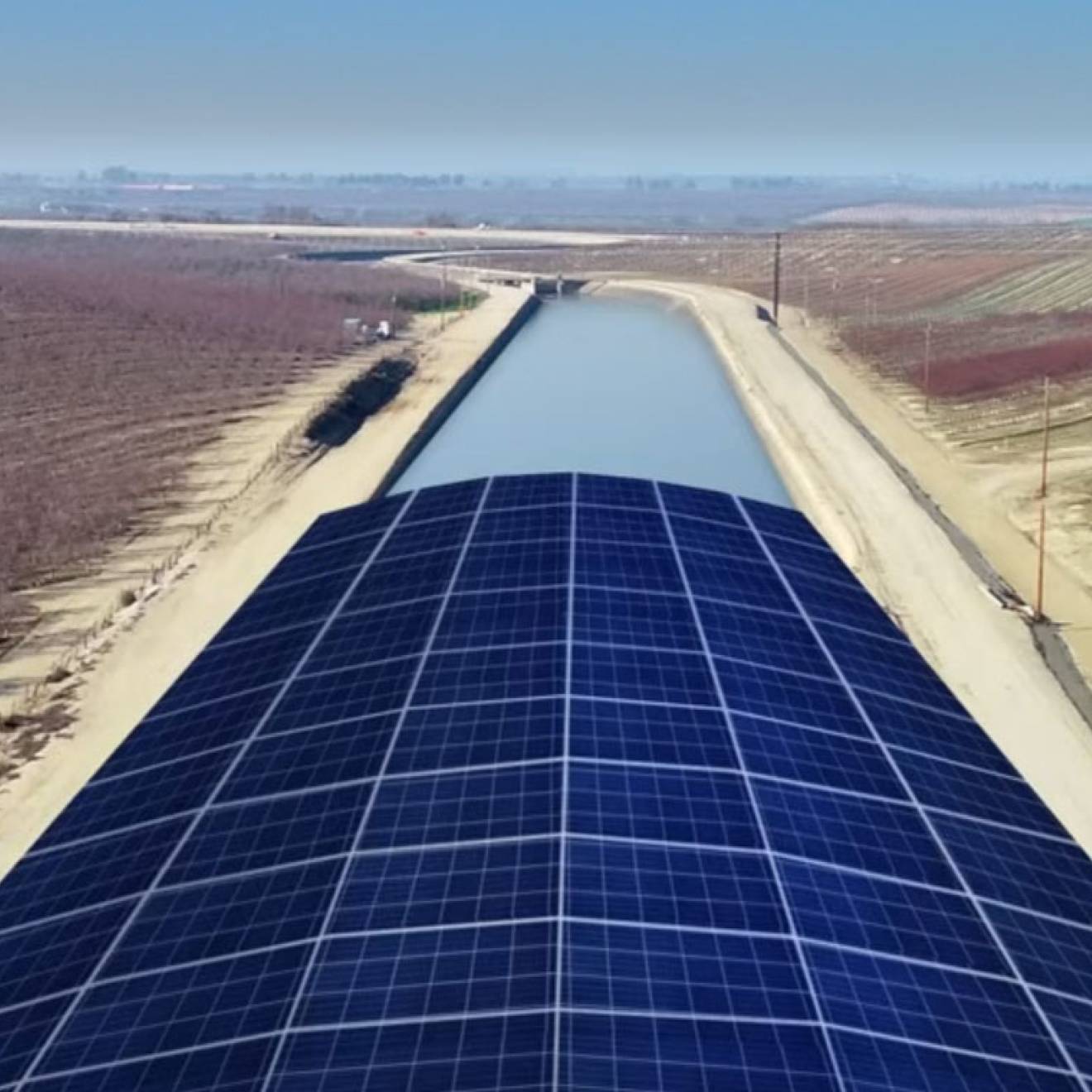Julia Busiek, UC Newsroom
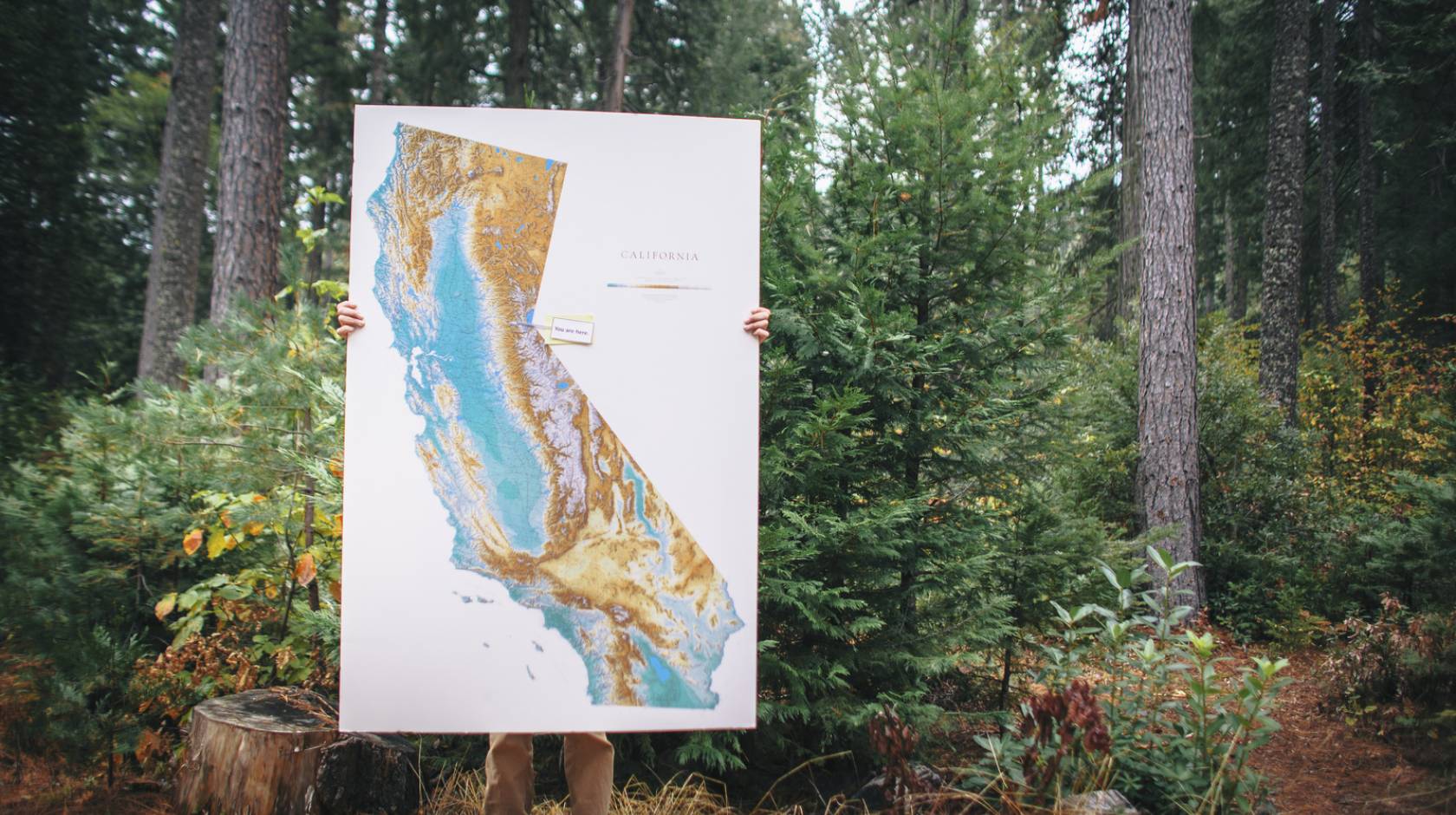
State officials, University of California leaders and researchers from nearly two dozen California universities gathered in Sacramento last week to sound the alarm about climate change and to rally behind the state’s global leadership in climate action, investment and research.
The event, held at the new UC Student and Policy Center, honored the awardees of the California Climate Action Seed and Matching Grants and the UC Climate Action Innovation and Entrepreneurship Grants. These grants are funding solutions-oriented research into wildfire, water, health, biodiversity, sea level rise, clean energy and disaster response, among other pressing topics, with a focus on protecting people’s health, homes and livelihoods.
To make this work possible, the State allocated $100 million to the UC Office of the President to distribute to researchers at public and private four-year universities throughout California. It’s the largest such investment in UC-administered research the State has ever made — a fitting response, the experts gathered in Sacramento agreed, to the magnitude and urgency of the climate crisis.
“I spent the last four and a half years in this job, and I thought I'd spend a lot more time thinking about the future and planning for the future, but our agency has been in emergency response mode,” said California Secretary of Natural Resources Wade Crowfoot in remarks to the gathering. Since he stepped into the role, California has careened between exceptional drought, deadly heat waves and atmospheric river-fueled floods, Crowfoot noted. Seven percent of the state’s land has burned in wildfires. Hundreds of Californians have lost their lives in climate-related disasters.
“So that's the grim picture in terms of what we face,” Crowfoot said. “But here is the encouraging piece: California is showing the world what we need to do.” For instance, the State has allocated $50 billion to climate action across multiple sectors and agencies in the past three years.
“Every day, California state workers make decisions about how to spend this $50 billion, and we need to be informed by the best available science,” Crowfoot said. “And that's why I'm so excited and proud and thankful to the researchers that we have here today. Because you all are informing the decisions that we're going to make.”
Crowfoot was among those who noted that California has proven its ability to lead on climate. For instance, the state met the goal set by AB 32, the landmark 2006 legislation that required it to cut its greenhouse gas emissions to 1990 levels by 2020, and it did so two years early.
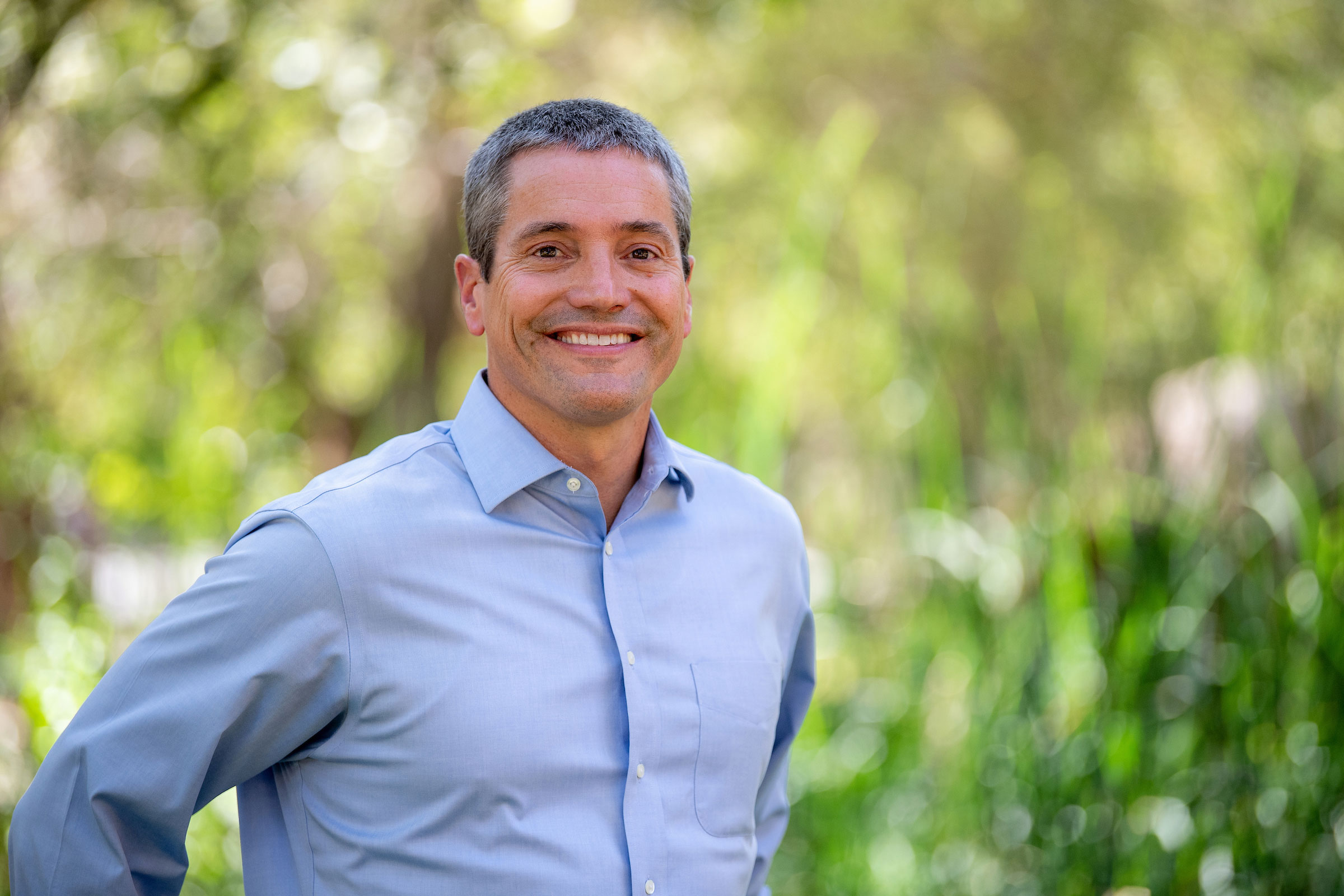
California Secretary of Natural Resources Wade Crowfoot.
“I'm just so happy to see how we've been able to meet our initial climate goals ahead of schedule and under budget. But I would certainly be remiss if I didn't recognize the fact that in those initial steps, we did really pluck the lowest hanging fruit,” said Sen. Ben Allen of California’s 24th District, who chairs the Senate Environmental Quality Committee. “I say this not to diminish the accomplishments, but to rather emphasize the work underway and to brace ourselves for what is more likely the toughest work yet to come.”
The California Climate Action Seed and Matching Grants, awarded in August, provided a total of $83.1 million to 38 teams to conduct two-year climate resilience projects in every part of California. In March, 15 UC locations also each received $1 million to seed climate-focused entrepreneurial efforts.
In all, the funded projects involve more than 130 community, industry, tribal and public agencies, as well as 12 UC locations, 11 California State University campuses and two private universities. The partnerships funded by these grants span 51 of California’s 58 counties, with more than $9.2 million going directly to community, nonprofit and tribal partners.
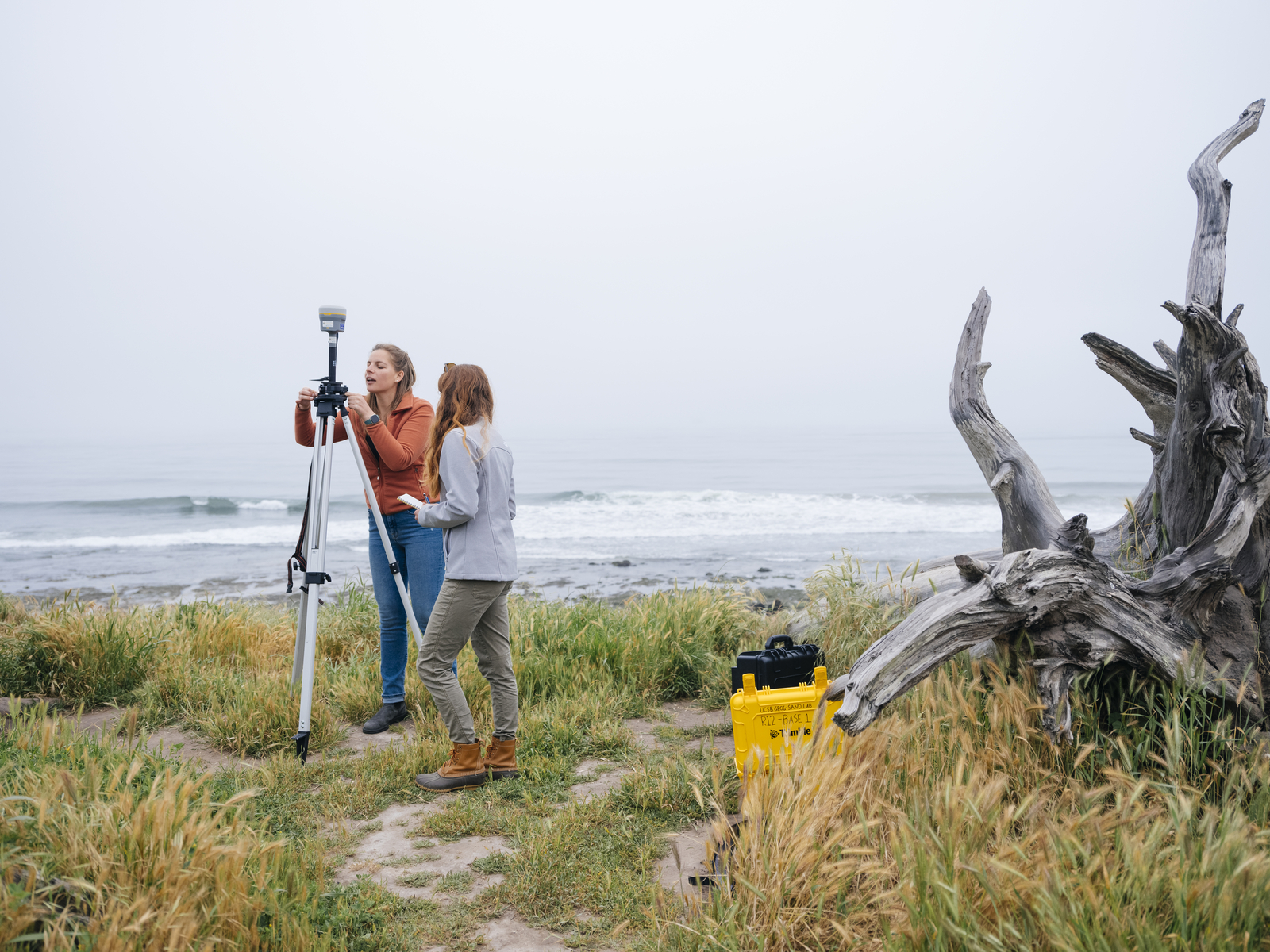
Raquel Williams, vice chairwoman of the Wilton Rancheria, opened the program with a greeting and prayer in the Miwok language. Following remarks by Secretary Crowfoot, Sen. Allen, UC Vice President for Research and Innovation Theresa Maldonado, Chief Deputy Director of the Governor’s Office of Planning and Research Saharnaz Mirzazad and UC Provost Katherine Newman, four of the Climate Action Matching grantees presented their projects.
Steve Allison, professor of ecology at UC Irvine, discussed how his team will devise new equity-informed approaches to planning for wildfire risk. Ted Grantham, associate professor of cooperative extension at UC Berkeley, will build and deploy new digital planning tools to democratize water allocation. Cynthia Daley, a professor in the College of Agriculture at California State University, Chico, will compare carbon sequestration between fields managed using regenerative and conventional agricultural techniques. And Megan Jennings, conservation ecologist at San Diego State University, will convene Tribal organizations throughout Southern California to strengthen connections between Indigenous Californians’ traditional ecological knowledge and academic climate science and land management.
“Our state is a natural environment for innovative ideas and bold action,” said UC President Michael V. Drake, M.D., in recorded remarks. “We are so grateful to Gov. Gavin Newsom and to the State Legislature for this historic investment in research that will help us address this urgent problem. I'm proud to see the University of California and our partners working together to increase climate resilience for communities across the state, particularly those hardest hit by climate change.”
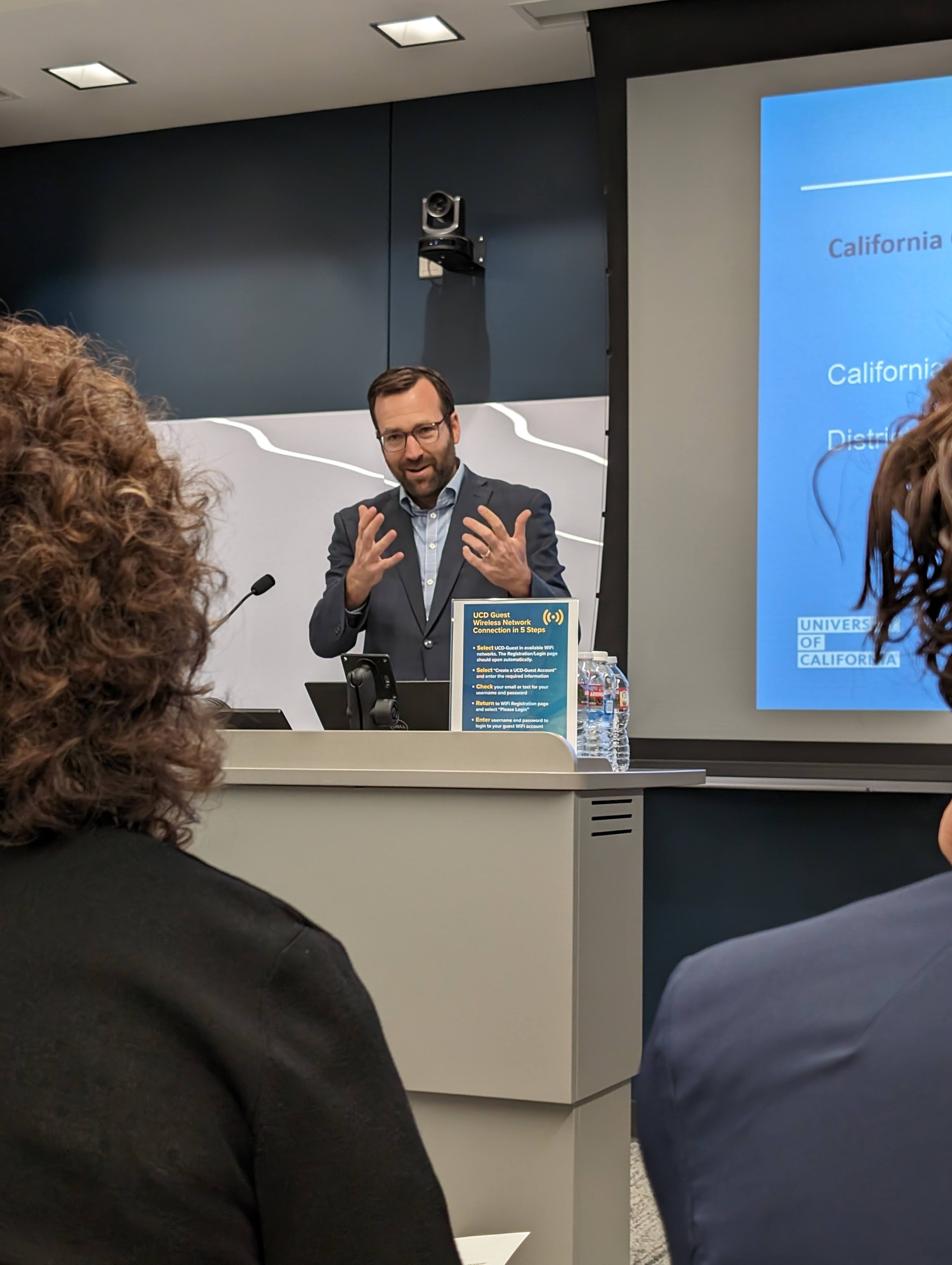
California Senator Ben Allen, who chairs the Senate Environmental Quality Committee, addresses State and UC leaders and climate scientists in Sacramento on October 25.

